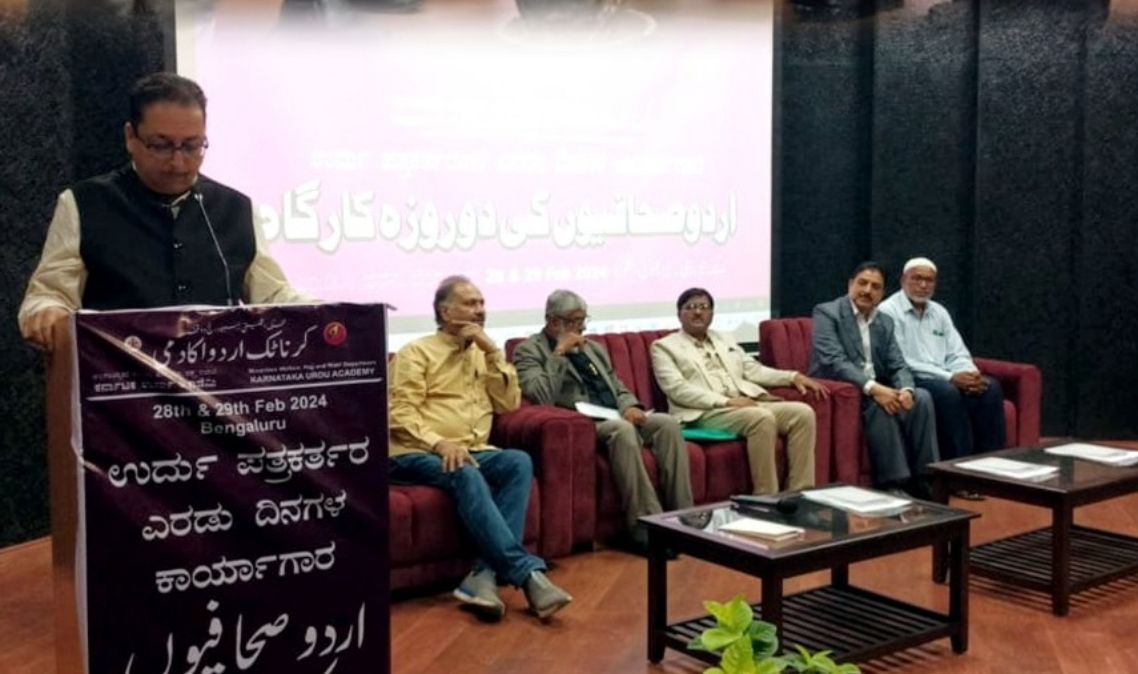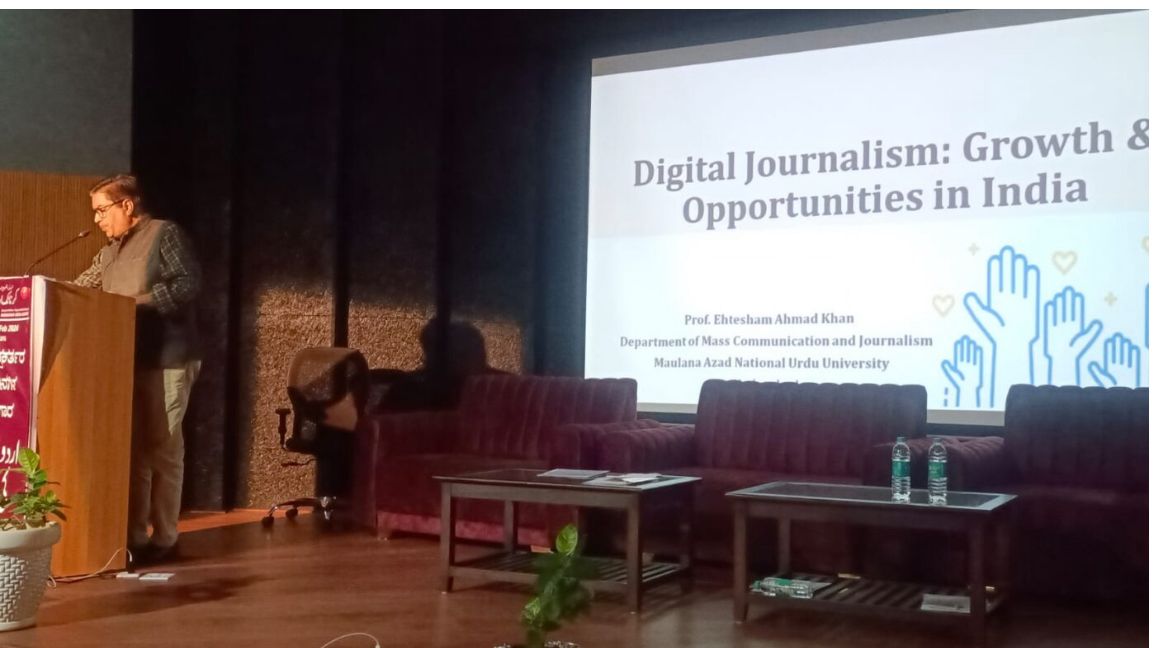Exploring the Rich Legacy and Future Challenges of Urdu Journalism: A Workshop by Karnataka Urdu Academy

TCN News
In the heart of Bangalore, amidst the vibrant culture of Karnataka, Urdu journalists gathered for a two-day workshop hosted by the esteemed Karnataka Urdu Academy, Bengaluru on 28 & 29 February 2024. Stepping into KMDC Bhawana, the air was filled with the soulful notes of Geet, setting a tone of reverence and anticipation for the days ahead.
Dr. Mazuddin Khan, Registrar of Karnataka Urdu Academy warmly welcomed the guests and participants. The program unfolded shedding light on the workshop's noble purpose.
Mr. Manoj Jain, Secretary, Minority Welfare, Government of Karnataka, emphasised the weighty responsibility that rests on the shoulders of journalists. He said that the journalist are guardians of truth in our society and emphasizes the role played by journalists is not limited to mere reporting; but they are architects of a better world, entrusted with the task of shaping public opinion to strengthen democracy at grassroot levels.
A Journey Through Time: The Essence of Urdu Journalism
Taking the stage, Mr. Mohammad Azam Shahid, a revered journalist and columnist, led participants on a reflective journey through the illustrious history of Urdu journalism. With passion in his voice, he spoke of two hundred years of Urdu journalism, marked by sacrifice, integrity, and an unyielding quest for truth. Drawing from the pages of history, Mr. Shahid painted a vivid picture of Urdu journalism's role as a resilient voice against oppression and a staunch advocate for freedom.
Reflecting on the challenges and triumphs of Urdu journalism, Mr. Shahid's words resonated deeply. "Urdu Journalism," he remarked, "is not just about reporting; it is a custodian of our culture and heritage." Expressing concern for the language's survival, he urged participants to not only be proud of the past but also be vigilant about the present and future. "When a language begins to fade," he lamented, " the newspapers are its last bastion. We must ensure Urdu thrives for it is not just a language but our shared legacy."
Crafting Stories: The Art and Responsibility of News Writing
The workshop took a practical turn as Dr. Anees Siddiqui, a distinguished researcher and journalist, shared insights on the craft of news writing. He described news as a delicate tapestry of facts, woven together with skill and precision. "A news story," he explained, "must not just inform but also evoke emotion and spark curiosity." Participants leaned in, eager to soak up every word of wisdom as Dr. Siddiqui delved into the nuances of storytelling, urging them to use language for enlightenment and empowerment.
Looking Ahead: The Future of Urdu Journalism
Prof. Ehtesham Ahmad Khan, Former Dean of School of Mass Communication and Journalism, Maulana Azad National Urdu University offers a glimpse into the evolving landscape of Urdu journalism. He said "Urdu language has boundries. It transcends regions and unites hearts." Speaking of technological advancements, Prof. Ehtesham painted a hopeful picture of Urdu journalism embracing modernity while staying true to its roots. He emphasized the importance of adopting Digital technologies for advancements in Urdu Journalism. He also illustrated about Data Journalism and asked that now journalist can become Data Journalist due to democratization of Information which may enhance new way of reporting through interesting storytelling by using the relevant data and graphic visualization.

Mr. Iftikhar Ahmed Sharif, a seasoned journalist who was Editor of Urdu Daily "Salaar", Bengal took the stage with impassioned fervor. He stated that Urdu is not merely a profession; it is a sacred duty. He reminded participants of their role as guardians of truth, entrusted with the power to shape opinions and hold the powerful to account. While cautioning the journalists that "Our Words" can uplift or destroy the society, so let us use them wisely."
Other resource person of the workshop Mr. Afsar Qadri explained the importance of investigative reporting and ethics in news reporting. Prof. Syed Akheel Ahmed, former Vice- Chancellor of Yenepoya University, Bengaluru, Karnataka and Global University, Saharanpur, UP spoke about the importance of emotional intelligence and asked journalist to be more empathic and while reporting on the sufferings of the common people and marginalized communities. The Chief Guest of the Valedictory Session Mr. Mohammad Sanaullah, Retd. IAS, former Principal Secretary of Government of Karnataka said that the young generations from Urdu speaking population shall join this noble profession so that the problems of the minorities may be solved and disseminate about various government s of the state and central government.
Dr. Majuddin Khan, Registrar, Karnataka Urdu Academy extended vote of thanks. The two days' workshop was attended by more than 50 Urdu Journalists from different parts of Karnataka.
